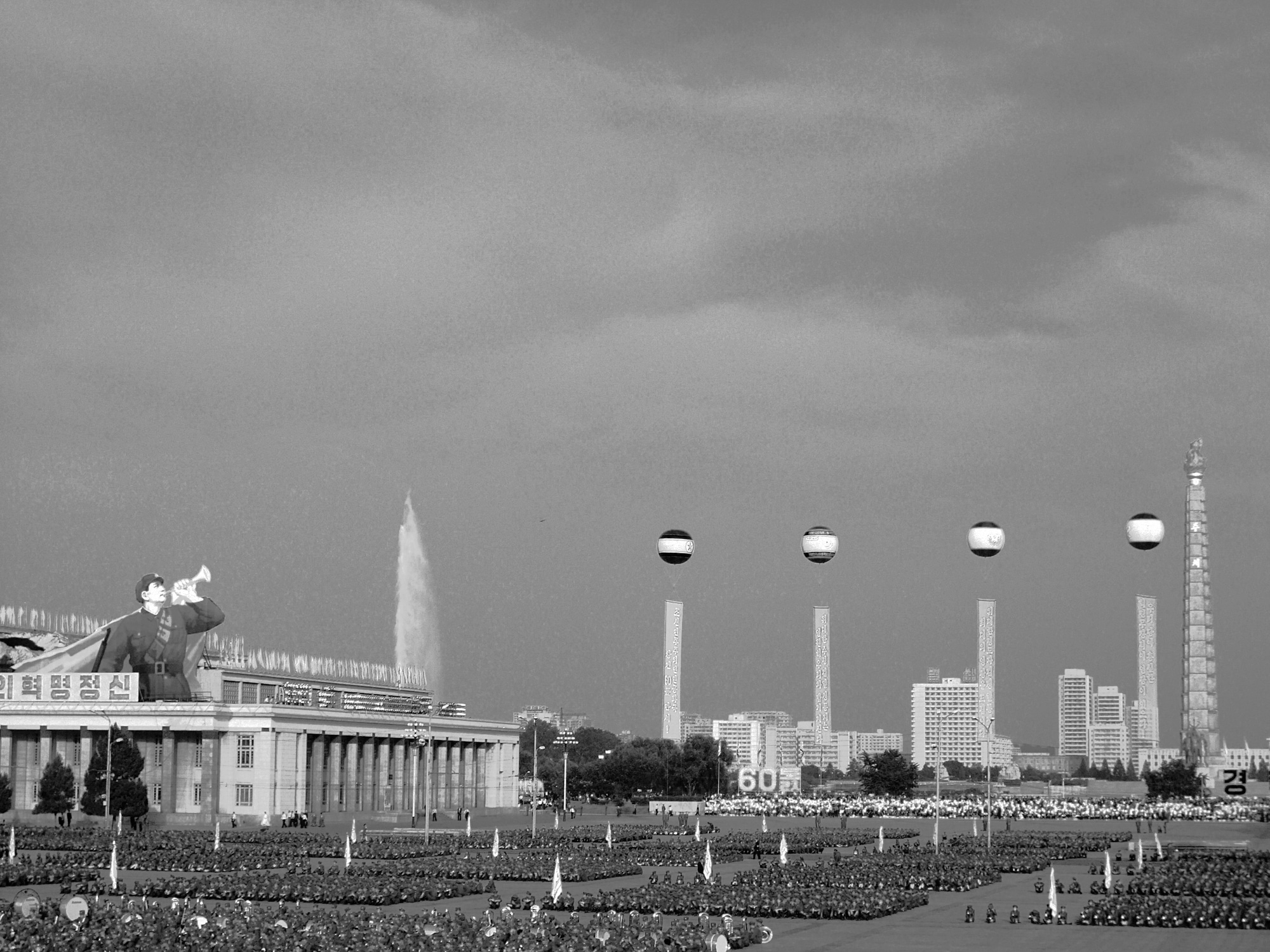The Biden administration’s Middle East vision is stalling even as it is just being launched. It is hitting a conceptual paradox in its presumption that it can forge a security, economic, and political architecture in the region bringing together its Israeli ally, Arab Gulf states, and Middle Eastern nations while simultaneously investing in nuclear talks with Iran seeking a deal that would lift all sanctions on the latter.
True, it would be a stroke of genius for the Biden team if they could pull off a secret strategic Iranian-Israeli understanding where Iran would consent to such an architecture and Israel would consent to Iran being part of a new security order that complements it, bringing together the GCC nations, Iraq, and Yemen. True, this would mean the new Middle East in which the Islamic Republic of Iran and the Jewish State of Israel can publicly reconcile, instead of their historic tango of indirect war and peace while their proxy conflicts continue to devastate Arab states. However, this is far-fetched.
Indeed, a realistic political reading indicates that the project of the regime in Iran would not allow it to relinquish its ideology. The regime cannot publicly accept Israel and cannot stop trying to export its revolutionary guards’ model to Arab states, not only to control them but also to prevent them from charting an independent course in their bilateral relations with Israel. And just like it is expedient for Iran that Israel continues to exist, behave greedily, and reject a two-state solution with the Palestinians, it is expedient for Israel that Iran pursues its nuclear project, as this is the fuel Israel needs to escalate when it sees fit, and leverage its dangers when it sees fit. Both states are theocratical in nature, no matter Israel’s pretences of being a democracy fundamentally contradicted by its insistence on being first and foremost a Jewish state.
The flaws in Biden’s vision include its detachment from this reality coupled with a condescending approach to the Arab states and ignorance of the governing dogmas of Iran and Israel. As a consequence, the 46th US president will not be able to build either a new world or a new Middle East. He has set out to do so too late when both Iran and Israel have already finished building their ‘forts’. Moreover, The Arab and Gulf states have already developed policies and choices based on breaking free of US expectations, ever since Barack Obama, the 44th president and his then-Vice President Joe Biden shocked them with a policy of abandonment and disregard. So what happens now?
President Biden’s visit to the Middle East was rushed, forced on him by the war in Ukraine and Europe’s dire need for alternative oil and gas streams to offset lost Russian supplies. If President Putin had not invaded Ukraine and upturned the global economic and energy landscape, Biden would not have hastened to visit Saudi Arabia, meet its leaders, and participate in the Jeddah GCC summit also attended by Egypt, Iraq, and Jordan. Indeed, President Biden had been fully preoccupied with the Vienna talks with Iran to revive the JCPOA and cut a bilateral deal similar to the one struck under the Obama-Biden administration.
Biden’s visit to Saudi Arabia is a ‘mea culpa’ visit to offer excuses and indirectly admit to his errors, not a constructive visit. Inevitably, the US president was held back by the Iranian issue during his Israeli stop, and the same goes for his Saudi stop because he is not done with the Vienna talks and has not concluded his commitment and insistence on a deal with Iran. These structural flaws in the arrangement of the visit mean he is lacking in the instruments to build long-term relations and polish sustainable strategies.
In other words, President Biden’s vision for a stable Middle East is hindered by the knot of Israeli-Iranian relations, the Iranian ideologically-driven behaviour in the Arab region, and the Iranian hostility to US presence in the region. The flaw is that Biden and his team believe they have a magic wand through which they can change Iran’s behaviour, ideology, and doctrine. Another flaw is this team’s belief that ‘patching up’ the Palestinian-Israeli question is sufficient to bring about a new reality, and that the mere reiteration of the two-state solution coupled with a meeting between Biden and Palestinian President Mahmoud Abbas is enough to cool down the resistance front and its Iranian links. The flaw lies in the determination of the Biden administration, like many other administrations before it, to withhold justice from the Palestinians and crush their right to statehood because Israel does not want a Palestinian state.
Until recently, US politicians feared angering Israel because of its influence on the US electoral scene. Today, alongside this fear, US politicians are wary of Iranian anger if the nuclear negotiations fail.
To some extent, President Biden walked himself into the trap of the Vienna talks seeking to revive the nuclear deal that his predecessor Donald Trump tore apart in protest at its shortcomings. Biden has become hostage to this process, navigating between Iran’s impossible conditions and Iran’s persistent march towards acquiring nuclear weapons. President Biden finds himself unable to resume the Trump-era policy of ‘maximum pressure’ on Iran, the mere idea of which is anathema to Biden, although he has not hesitated in adopting Trump’s policy that launched the Abraham Accords for Arab-Israeli normalization.
The Biden team wants to create a new Middle East following in the footsteps of Trump’s Israel policy, but it will find that its undoing of Trump’s Iran policy is the biggest obstacle to building the Middle East they wish for. Indeed, Iran will not allow the creation of a regional security order that brings together the Arab states and Israel while Iran remains outside it. Iran’s capability for subterfuge is immense and will not hesitate to use it. The price Iran wants is for the Biden administration to fully lift all sanctions on Iran, in accordance with Iranian conditions in the Vienna talks. But the Biden administration is in a bind.
It is in a bind because it is trying to revive US presence in and strong relations with the Arab Gulf States, and quickly build a coexistence and normalization structure between them and Israel. It believes this could be permanent and sustainable regardless of what happens in the negotiations with Iran, which the Biden team believes will be ultimately fruitful. But such thinking is wishful gambling, not a policy. It also suggests that the Biden team is improvising policies without a vision and is marred by an alarming degree of strategic incoherence.
What the United States needs today is to rebuild its Middle Eastern presence with clarity and pragmatism. Today, it appears somewhat childish, building quasi-contradictory policies: One seeking accord with Iran by meeting its conditions and ending sanctions, and another that is provocative, suggesting Iran will be excluded from security and economic arrangements in the Middle East between Arab Gulf States and Israel.
Forging a new role for the United States in the Gulf is crucial but risky if the Biden administration makes strategic blunders. The Biden administration was too late in clarifying the features of its policy in the Gulf and the Arab region, because of its preoccupation with Iran. In that time, the Arab states charted a different course, adopting policies that are independent from the norms of traditional US-Gulf relations yet without divorcing themselves from them. There is a chance to repair this, but the time of absolute trust in and full reliance on America is over. For this reason, the Biden team has its work cut out for it, not just with Iran and Israel, but also with the Arab states.
Building axes of alliance cannot be done in the same way as during the Cold War, and polarization is now much more complicated. This does not invalidate the fact that there is an axis comprised of China, Russia, and Iran closely watching what the Biden administration is trying to do. Yet in Russia’s view, the United States will not be able to build a serious axis because it is getting the substance and timing wrong, and the Kremlin’s view is that it’s not stability that matters today, but the building of axes, strategies, and security architectures that have strong, durable roots.
Raghida Dergham on LinkedIn, 17th of July 2022




